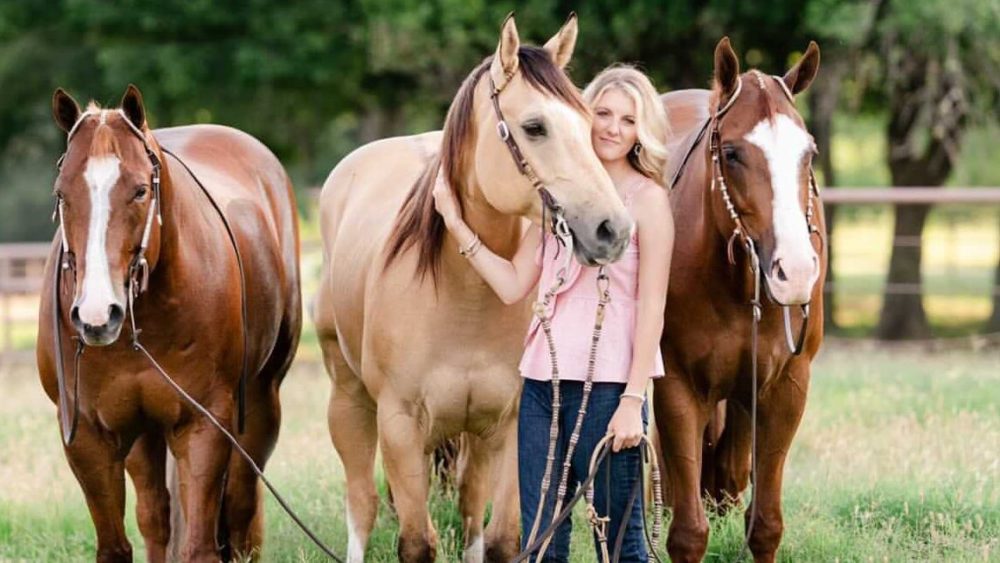The American Quarter Horse is known for its exceptional levels of versatility. These horses can successfully compete in various events from reining, jumping, and western pleasure. Not only is this versatility impressive in direct regards to the horse’s physical capabilities, but it also allows for an inexhaustible variety of events for riders to compete in.
Youth exhibitors Madison Fussell, Grant Mastin, and Alexia Tordoff have all recently branched out to try a new discipline. All three successfully competed in their new event at this year’s AQHYA World Championship Show at the end of July. GoHorseShow had the opportunity to sit down and talk to them about the benefits and challenges of learning a new discipline and their experience in competing in it at this year’s World Show.
Challenge: Adaptation to New Demands
Madison Fussell of Waxahachie, Texas, only recently started showing the ranch riding events on her horse, Sac River Scooter. Successfully competing in the all-around events on the AQHA circuit for years, she found that learning the ranch riding was no walk in the park.
“The hardest thing about learning the ranch riding, coming from the horsemanship pen, is relaxing your body and having different buttons for your horse,” she explained. Aspects such as stopping “with your feet off instead of on, starting your turn with your rein, and not your feet, first – little stuff like that” were seemingly minor changes that presented a challenge to Madison in learning this new event.
 Alexia Tordoff of Powell, Ohio, spoke along similar lines. Having started to show on the reining circuit over the past couple of years, Tordoff explained that “learning how to adapt” was the most significant challenge in the learning process. “Going into it thinking that every horse is going to ride like a horse that we show in our all-around circuit was pretty tough,” she said.
Alexia Tordoff of Powell, Ohio, spoke along similar lines. Having started to show on the reining circuit over the past couple of years, Tordoff explained that “learning how to adapt” was the most significant challenge in the learning process. “Going into it thinking that every horse is going to ride like a horse that we show in our all-around circuit was pretty tough,” she said.
An additional challenge that went hand-in-hand with adapting to a new riding style, Tordoff said, was lowering her personal expectations when it came to results. Transitioning to an event with which she had little experience, Tordoff said that she “really had to learn to take it slow and learn that I was a green rider in the reining.”
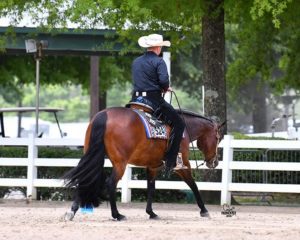 For Grant Mastin of Jackson, Ohio, adapting to a new event looked slightly different. While he was not learning a completely new style of riding as he began to show western riding in 2020, the complexity of the event presented some challenges for Grant. As he put it, he faced the challenge of “understanding that there’s more to western riding than just changing leads.”
For Grant Mastin of Jackson, Ohio, adapting to a new event looked slightly different. While he was not learning a completely new style of riding as he began to show western riding in 2020, the complexity of the event presented some challenges for Grant. As he put it, he faced the challenge of “understanding that there’s more to western riding than just changing leads.”
Just as Fussell cited the small details of ranch riding as being some of the most challenging, Mastin found that the minute details of western riding, such as “going up into the change, maintaining the same pace throughout the pattern, and keeping our lines straight,” were tricky to master.
Benefit: Using the Challenges to Encourage Growth
Tordoff, Mastin, and Fussell all agreed that the most significant benefit, and one that arguably outweighs the challenges of learning to show a new event, is the growth they experienced overall as riders.
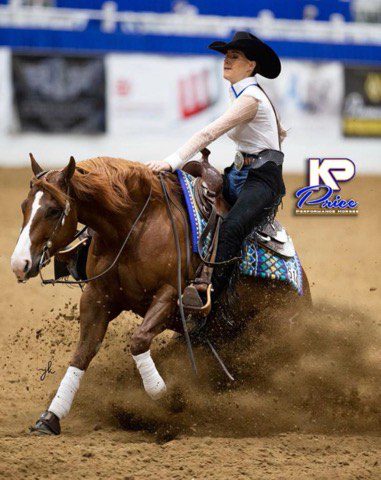 Tordoff expressed that she believes “taking on a new challenge or a new class like that makes you a better horseman overall. Learning how to adapt to different scenarios like that, different horses, different patterns, makes the rider as an individual so much stronger.”
Tordoff expressed that she believes “taking on a new challenge or a new class like that makes you a better horseman overall. Learning how to adapt to different scenarios like that, different horses, different patterns, makes the rider as an individual so much stronger.”
Similarly, as a rider who almost exclusively competed in the trail before 2020, Mastin has found that branching out to learn western riding has helped develop his skills in the trail. Both western riding and trail events are centered around intense attention to detail. Aspects of each event cross over to benefit the rider’s skill in the other. “I think it has helped my trail tremendously improve,” he said, “just taking some things that I’ve learned from the western riding and taking different approaches.”
Fussell agrees, saying that as she is, “getting to experience a different horse in the pen,” and having to learn the ins-and-outs of how to “manipulate him while still showing,” she is becoming a better rider for it, because doing so “makes you stronger physically and mentally,” as a rider with a broadened skillset.
2021 AQHYA World Championship Show: Lessons Learned with Valuable Experience
Not only have all three of these riders learned to ride these new events, but they also proved at this year’s AQHYA World Championship show that they have learned to show them exceptionally well.
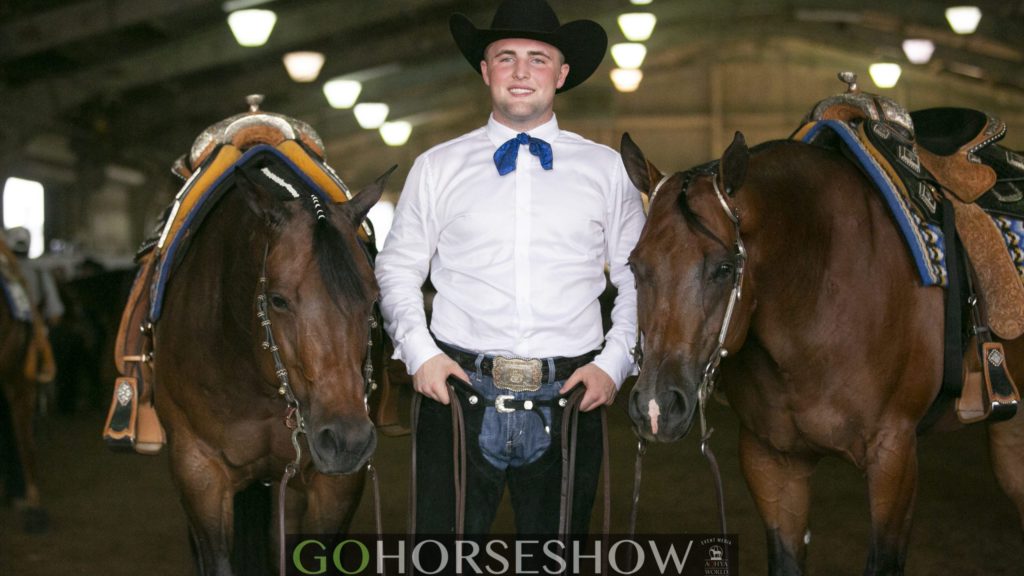 Mastin took home both World and Reserve World Champion honors on his two horses, Justa Machine and Hand Made Machine, in the Level 3 14-18 Western Riding. Grant told us that the experience of going first and second in the Western Riding was “unreal.” Though he had thought about the possibility, it was “something that I could never have imagined actually happening.”
Mastin took home both World and Reserve World Champion honors on his two horses, Justa Machine and Hand Made Machine, in the Level 3 14-18 Western Riding. Grant told us that the experience of going first and second in the Western Riding was “unreal.” Though he had thought about the possibility, it was “something that I could never have imagined actually happening.”
He explained that in the lead-up to the world show, he devoted his time and attention to switching from one horse to the other very quickly, as each horse was ridden differently. A seamless transition from one mount to the other without much warm-up time was an absolute necessity for Mastin to be as successful as he was at the World Show.
Tordoff took home tenth place at this year’s Youth World Show in the L3 14-18 Reining with her horse, Smart Spook Affair, after qualifying in the shootout for the finals. Showing a horse that she described as “challenging,” Tordoff told us, “Something that my trainer told me was just to go in there and show and not worry about it, because if I just went in there to show, then a lot of the problems probably wouldn’t happen.” This valuable lesson, not worrying about what could go wrong and “just go show,” paid off for Tordoff with her big score of 218, finals qualification, and top-ten finish.
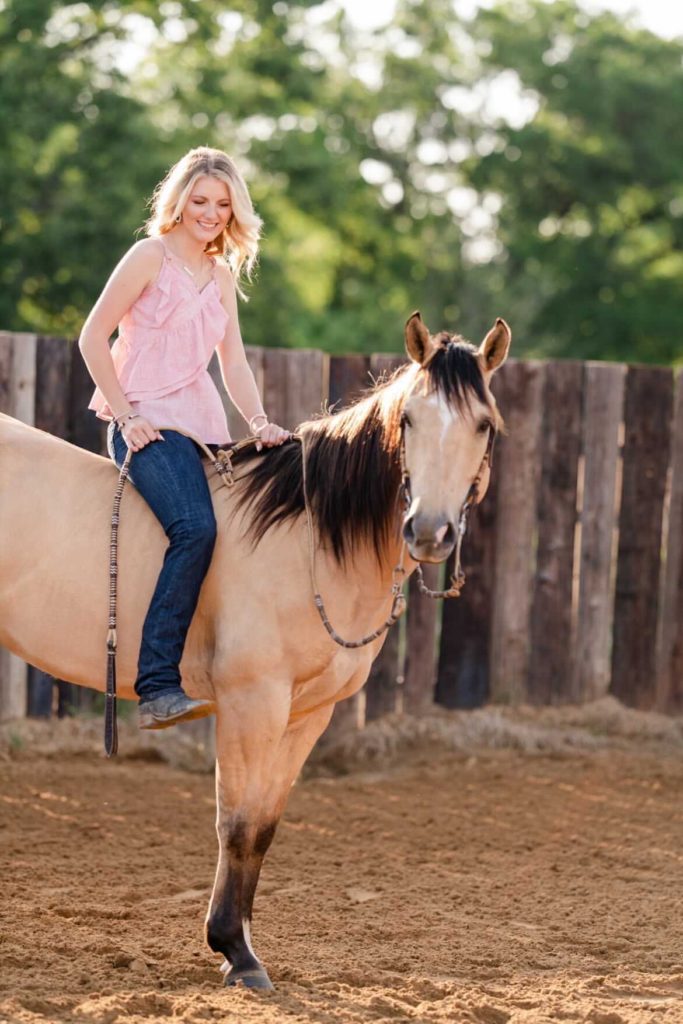 Last, but certainly not least, Fussell had only shown ranch riding about three other times before she competed in the event at the Youth World, making the new event that much more challenging for her.
Last, but certainly not least, Fussell had only shown ranch riding about three other times before she competed in the event at the Youth World, making the new event that much more challenging for her.
On top of this, she showed the Level 2 Equitation and Hunter Under Saddle Prelims on the same day. “My mom ended up getting my ranch rider ready because I was still in the equitation pen while they were holding the ranch riding prelims for me,” Fussell said, “I had to run over, get changed, and run to show the ranch riding, so I had no time to sit and think, which honestly helps me so that I don’t get nervous.” Fussell ended up making the shootout in the Level 3 Ranch Riding, an impressive feat for a rider so green in the event.
With so many different events offered to exhibitors, and horses so capable of them all, there is almost always something new to try. And while learning a new discipline may be frustrating or discouraging at times, as Madison, Grant, and Alexia have found, the benefits of doing so are well worth the challenge.


